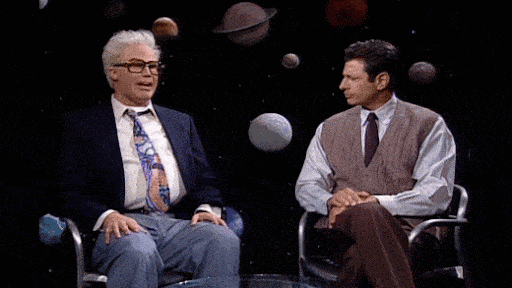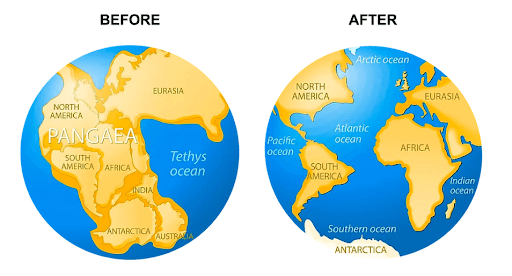Have you ever wondered where the Moon came from?

Image: YouTube
Throughout recorded history, there have been four prominent theories describing the Moon’s creation. And thanks to a study published in the peer-reviewed journal Science Advances last week, we now have the first chemical proof supporting one above all others.
🌕 Background… The three Swiss-cheese theories, aka they’re full of holes, of the Moon’s creation are as follows: capture, accretion, and fission. For brevity’s sake we won’t cover them in-depth, but you can find the ideas – and why they’re probably wrong – here.
The winner winner, chicken dinner goes to #4, the Giant Impact, aka Theia Impact, theory. This one says the Earth collided with another planet about the size of Mars, called Theia, ~4.5 billion years ago. Computer simulations, plus the composition of the Moon being similar to the Earth’s mantle, supported this theory prior to last week – and now we have some more proof.
- Using a noble gas mass spectrometer nicknamed “Tom Dooley” after a Grateful Dead song, the researchers’ studied six lunar samples discovered in Antarctica. In them, they discovered helium and neon, both noble gases found in the Earth’s mantle. The presence of the two is significant, since the samples were unexposed to the Moon’s surface, supporting the idea of a colossal celestial impact.
👀 Looking ahead… The question now seems to be: Where on Earth is Carmen San Diego did the Moon come from?
But all jokes aside, the researchers are hoping their discovery could lead to further study of more than just the Moon. NASA has a collection of ~70,000 approved meteorites sitting in the trophy case, which may be getting dusted off soon (literally😉) in search of further noble gases.
+Dive deeper: What exactly are noble gases?
Share this!
Recent Science & Emerging Tech stories

Science & Emerging Tech
| August 11, 2022It’s not you, it’s me(teorites)
☄️ Scientists have found “the strongest evidence yet” that Earth’s continents were formed by giant meteor impacts throughout the planet’s early history, per a new peer-reviewed study.

Science & Emerging Tech
| August 11, 2022The wonders of WiFi
📶 A team of Austrian scientists developed a new technique to make WiFi signals more transmittable through walls without reflection, per new peer-reviewed research.

Science & Emerging Tech
| August 10, 2022When the clock strikes midnight
🧠🕛 According to a new meta-analysis of peer-reviewed research, the human mind becomes more susceptible to negative thoughts and destructive behavior past 12 AM, resulting in higher levels of suicide and self-harm, violent crime, substance use, and food intake.
You've made it this far...
Let's make our relationship official, no 💍 or elaborate proposal required. Learn and stay entertained, for free.👇
All of our news is 100% free and you can unsubscribe anytime; the quiz takes ~10 seconds to complete